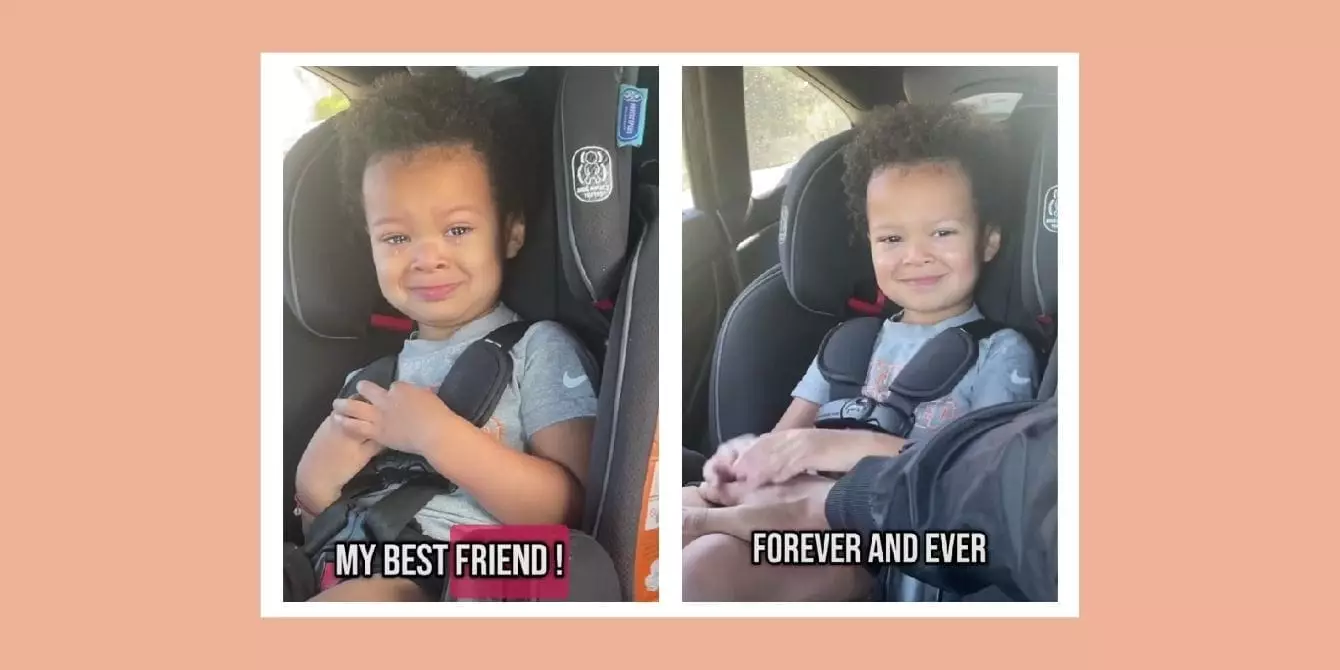In an age where social media highlights an array of parenting styles and philosophies, a TikTok video by @Micahzanesworld has managed to resonate with millions, striking a powerful chord that transcends typical father-son interactions. The video captures a dad taking a tender moment, affirming his toddler son with phrases that are both touching and timeless. “You’re the best son ever, my favorite! My best friend! Forever and ever, I’mma be your daddy,” he says, his calm voice wrapping around each word like a soft blanket. This moment is more than just a fleeting exchange; it’s a significant affirmation, echoing sentiments from generations past while fostering emotional resilience in the present.
By simply being present and articulating love, the father not only impacts his son but also challenges traditional notions of masculinity. As viewers, we can’t help but get emotional alongside the child, who blinks back tears that hint at the profound nature of his father’s words. This poignancy has been mirrored in the millions of views and comments that pour in, showing that the importance of emotional expression remains largely underappreciated, especially among fathers.
Shifting Perspectives on Masculinity
The conversation around fatherhood is evolving. Today, millennial dads are stepping up in ways that redefine their roles while nurturing emotional bonds with their children. Unlike previous generations where emotions were often repressed, this father embodies a shift towards open dialogue and emotional expression. The insights shared by viewers further enhance this narrative, with comments emphasizing the transformative potential of affirming love. One user remarked, “In his past life, he wanted to hear that from his dad, and he finally got it,” capturing the essence of how parenting can break generational cycles of emotional suppression.
Research supports these emotional connections, indicating that children who receive warmth and affection from their fathers develop better emotional regulation, higher self-esteem, and stronger social skills. It’s vital to acknowledge the power of these interactions, as they lay the groundwork for how young boys will express themselves in adulthood. A society that encourages men to suppress feelings creates emotional barriers that hinder genuine connections with others, perpetuating a cycle of silence and stoicism.
The Cultural Shifts Needed
The video not only promotes healthy emotional expression between fathers and sons; it also calls for a larger societal shift. Many fathers, often influenced by traditional upbringing, mistakenly believe that toughness equates to strength. “A lot of times, fathers feel like we need to be super tough on our kids,” says a father featured in the narrative. This rugged approach, characterized by dismissing emotional vulnerability, is detrimental both to men and their children. Instead, it’s imperative to recognize that masculinity can coexist with sensitivity.
Education is key here. By advocating for open emotional communication, we can cultivate boys who grow into caring, emotionally intelligent men. Parents who affirm this philosophy contribute to a future where discussing feelings is as common as discussing sports or school achievements. The poignant expressions of love shared in the TikTok video serve as a catalyst for broader acceptance of this nurturing behavior.
The Role of the Community
The community response surrounding this video illustrates just how significant this emotional expression is. The comments section serves as a virtual support group, offering validation and encouragement for both the father’s actions and the emotional growth of his son. Many commenters highlight the importance of teaching children—especially boys—that it is okay to express emotions. Such dialogues enrich the community, demonstrating how collective support can aid in changing perceptions surrounding fatherhood.
Through such platforms, the narrative of fatherhood is being reshaped into one that celebrates emotion rather than stifles it. Viewers like Amanda, who remarked that the father is “teaching him that it’s okay for men to show emotion,” reveal the impact of these affirmations—not just on the child but on the broader social fabric. The act of sharing this video catalyzes conversations about emotional wellness, promoting a culture that fosters empathy and vulnerability among men.
In a world that often enforces rigid gender roles, this father’s dedication to nurturing his son through love and affirmation marks a vital step toward creating a new paradigm in parenting. By prioritizing emotional connection, we pave the way for future generations to embrace a holistic view of masculinity—one that champions emotional intelligence alongside traditional qualities such as strength and leadership.

